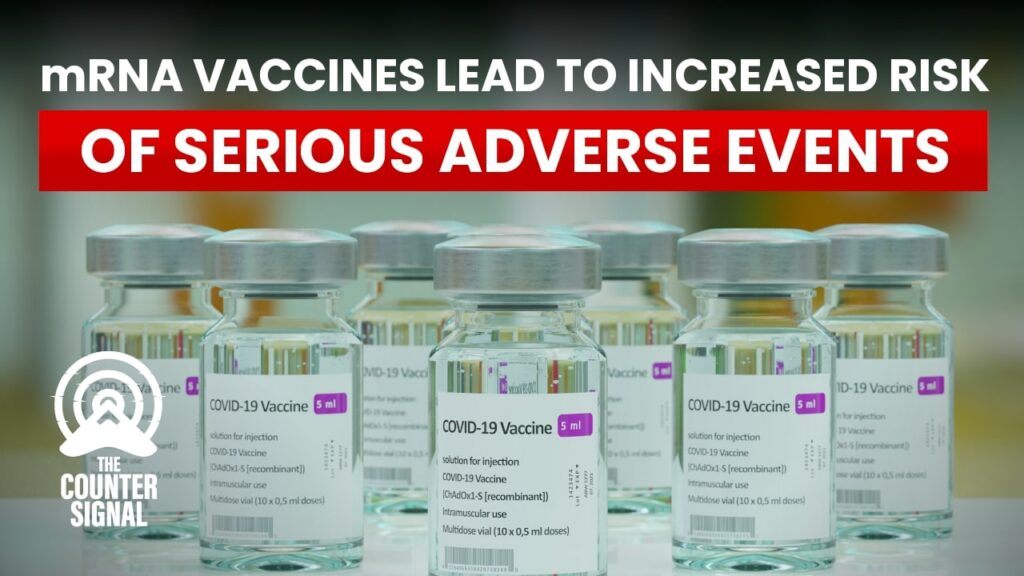A new study has found that the Pfizer and Moderna mRNA vaccines were associated with “an increased risk of serious adverse events of special interest” that likely outweighs any benefit of taking them.

As per the study’s results:
“Pfizer and Moderna mRNA COVID-19 vaccines were associated with an increased risk of serious adverse events of special interest, with an absolute risk increase of 10.1 and 15.1 per 10,000 vaccinated over placebo baselines of 17.6 and 42.2 respectively.”
“Combined, the mRNA vaccines were associated with an absolute risk increase of serious adverse events of special interest of 12.5 per 10,000. The excess risk of serious adverse events of special interest surpassed the risk reduction for COVID-19 hospitalization relative to the placebo group in both Pfizer and Moderna trials (2.3 and 6.4 per 10,000 participants, respectively).”
OMFG. This is not good. This is not good at all. Serious Adverse Events of Special Interest Following mRNA Vaccination in Randomized Trials https://t.co/XhcBVGL4Bt
— Dr Jordan B Peterson (@jordanbpeterson) June 22, 2022
The study was undertaken by American researchers at several reputable institutions, including Stanford University, the University of Maryland School of Pharmacy, and the Navarre Health Service.
When undertaking the study, researchers analyzed journal publications and trial data on the FDA and Health Canada’s websites to locate serious adverse event results tables. These stemmed from Pfizer and Moderna’s one phase III randomized trials.
However, researchers found proper long-term randomization became compromised as many placebo recipients in the trials were eventually offered the actual vaccine. Thus, to preserve randomization and the accuracy of their findings, researchers used the interim datasets that were the basis for emergency authorization in December 2020, approximately four months after trials commenced.
As for what researchers considered a severe adverse event, the following were considered: death; life-threatening at the time of the event; inpatient hospitalization or prolongation of existing hospitalization; persistent or significant disability/incapacity; a congenital anomaly/birth defect; and medically important events, based on medical judgment.
Overall, according to the researchers, who received no funding support, the excess risk of serious adverse events found in the study justifies future formal harm-benefit analysis, especially “those that are stratified according to risk of serious COVID-19 outcomes such as hospitalization or death.”
Put simply, researchers found that mRNA vaccines pose a greater risk than the possibility of catching COVID and becoming seriously ill or dying. The cure is worse than the disease.









